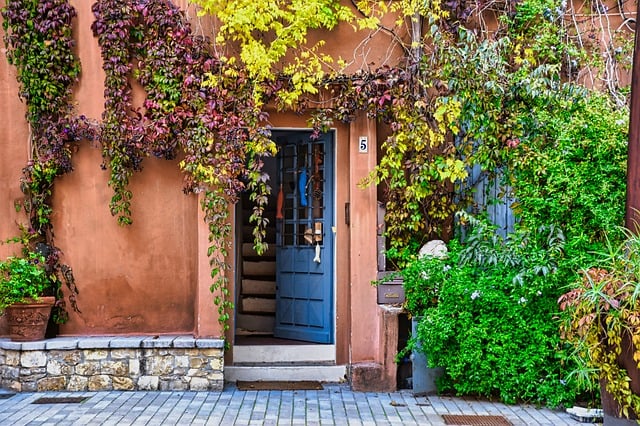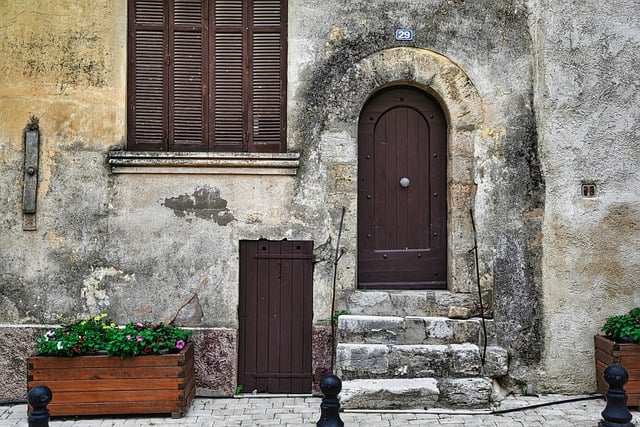When homeowners leave for vacation, using house sitting services ensures their property is well-maintained. A reliable house sitter monitors for hazards, maintains appliances and systems, performs security checks, and conducts regular property inspections to prevent issues from escalating. Clear expectations and detailed instructions are essential for the house sitter to act as a steward of the home, preserving its condition. House sitting also involves documenting any repairs or incidents, providing updates with photos, and ensuring security systems are functional to protect against intruders. For added security, integrating remote monitoring systems and smart home technologies can alert homeowners in real-time to any suspicious activities, offering peace of mind while safeguarding the property from the effects of prolonged unoccupied periods. The right house sitter, with a background checked by a professional service, provides a personal presence that deters intruders and performs minor maintenance tasks. Effective communication with your house sitter is key to resolving issues promptly and maintaining a secure and well-cared-for vacation home in your absence. House sitting services, when chosen wisely and utilized effectively, are an economical solution for property upkeep and security while ensuring the integrity of your vacation home.
When owning a vacation home, ensuring its upkeep and safety while you’re away is paramount. This article delves into the nuances of effective house sitting and property monitoring, guiding homeowners through the responsibilities, strategies, and considerations necessary for maintaining a second home. We’ll explore the integration of technology, the preparation for long-term stays, and the creation of a detailed checklist to keep your vacation home in top condition. From proactive maintenance and utilities management to legal matters, vetting house sitters, and communication protocols, this comprehensive guide will navigate you through the essential steps to safeguard your property, ensuring peace of mind whether you’re gone for a weekend or the season. House sitting is not just about presence; it’s a multifaceted approach to protecting your investment, with local regulations and insurance plans also playing critical roles. Join us as we examine real-world scenarios where house sitting has been successfully implemented, providing valuable insights for vacation homeowners everywhere.
- Understanding the Responsibilities of House Sitting During Vacation Home Maintenance
- Key Considerations for Effective House Sitting and Property Monitoring
- Strategies for Secure and Efficient Monitoring When House Sitting
Understanding the Responsibilities of House Sitting During Vacation Home Maintenance

When entrusting a vacation home to a house sitter, it’s crucial to communicate clear expectations and provide detailed instructions for routine maintenance tasks. House sitting isn’t merely about feeding pets or collecting mail; it encompasses a comprehensive approach to upholding the property’s condition. Responsible house sitters act as the home’s caretakers, monitoring environmental factors that could lead to damage, such as water leaks, mold growth, or pest infestations. They should be vigilant in ensuring appliances and systems like heating, cooling, and plumbing are functioning correctly throughout the duration of their stay. Regular inspections of the property, both interior and exterior, allow for timely identification and rectification of minor issues before they escalate into costly repairs. Additionally, maintaining a secure environment by managing access points and conducting security checks can deter potential break-ins or vandalism, further safeguarding the vacation home’s integrity. Effective house sitting requires a proactive approach, aligning with the owner’s expectations for property preservation and peace of mind, even when they are away.
Key Considerations for Effective House Sitting and Property Monitoring

When considering house sitting and property monitoring as a homeowner with a vacation property, it’s crucial to select a reliable house sitter who can provide consistent oversight. This individual should be trustworthy, responsive, and familiar with basic maintenance tasks. They should be capable of addressing routine issues promptly, such as fixing leaky faucets or resetting circuit breakers, to prevent minor problems from escalating into costly repairs. Additionally, the house sitter must understand the importance of documenting any incidents or repairs, which facilitates smooth communication with property owners and maintenance teams upon their return. Regular updates on the property’s condition, along with photographs if necessary, ensure that homeowners are kept in the loop regarding their vacation home’s status, providing peace of mind even from a distance. Security systems, including cameras and alarms, should be tested and functional to deter potential intruders and alert the house sitter or local authorities to any unauthorized access. Ensuring that the property is secure, maintained, and monitored effectively while you are away is essential for preserving the integrity of your vacation home and protecting your investment.
Strategies for Secure and Efficient Monitoring When House Sitting

Engaging in house sitting can be a cost-effective way to maintain your vacation home while you’re away, ensuring it remains secure and well-maintained. To maximize efficiency and security during house sitting, consider implementing remote monitoring systems that allow for real-time surveillance. These systems often include cameras and sensors that can detect unusual activity, alerting you immediately to any potential issues. Additionally, smart home technology can be a boon for vacation homes, enabling you to control lighting, temperature, and security systems remotely. This not only provides peace of mind but also helps to preserve the condition of your home by preventing unnecessary wear and tear from extended unoccupied periods.
For a personal touch and added layer of security, trustworthy house sitters can be a valuable asset. They can perform routine checks, handle minor maintenance tasks, and even act as a deterrent to potential intruders. When selecting a house sitter, opt for someone with relevant experience or a background checked by a professional service. Moreover, establish clear expectations and responsibilities to ensure the care of your home aligns with your needs. Regular communication with your sitter can also help address any concerns promptly, ensuring that your vacation home remains in top condition even when you’re not there.
When entrusting your vacation home to house sitting services, it’s crucial to implement a robust maintenance strategy that balances vigilance with efficiency. This article has outlined the responsibilities involved in responsible house sitting, highlighted key considerations for effective property monitoring, and provided strategies to ensure secure oversight of your home away from home. By understanding these components, homeowners can rest assured their vacation property is well-maintained and protected, regardless of distance. House sitting, when done diligently, serves as a cornerstone in preserving the integrity and security of a vacation home. Homeowners are encouraged to take these insights into account for a peace of mind experience, ensuring their property remains in pristine condition for their return.
